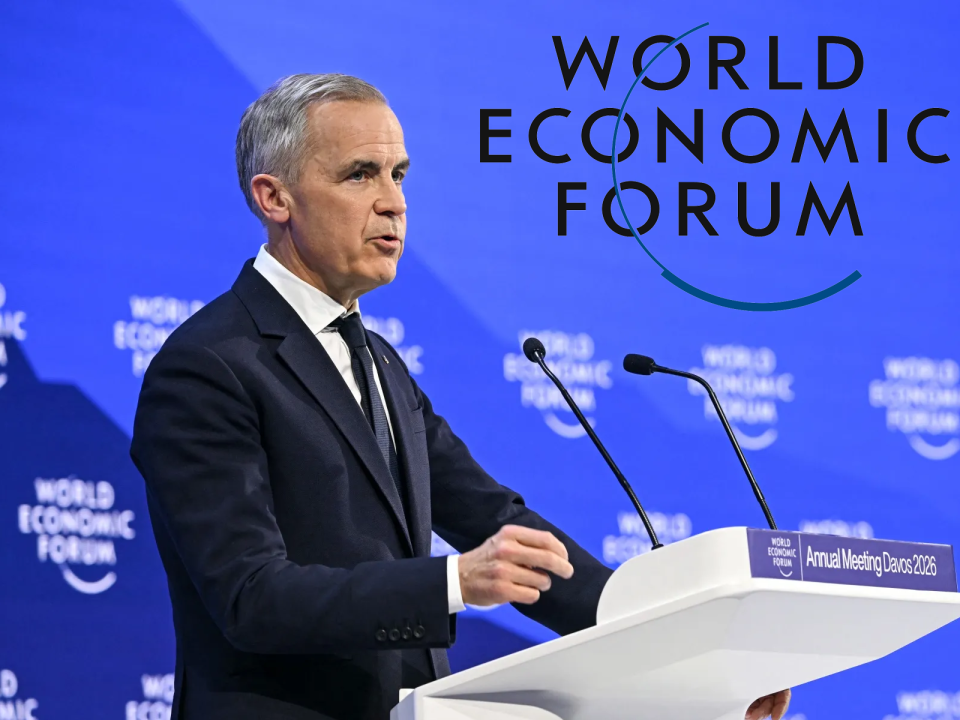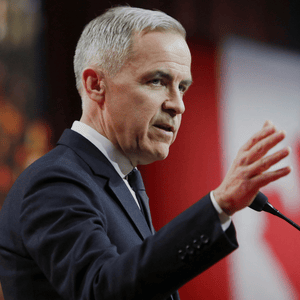
A majority says they support reducing spending and paying down the debt, but there is no clear consensus on how, according to INNOVATIVE’s tracking.
These results come from an online poll conducted between October 6th and October 27th, 2025, of 4,106 Canadian citizens, 18 years or older. This survey was sponsored by INNOVATIVE Research Group Inc. and weighted to n=2,500 based on age, gender, region, education, and self-reported past federal vote to ensure the overall sample reflects the population according to Census data.
As we head into the budget Prime Minister Carney’s government is introducing on November 4th, INNOVATIVE took the pulse of Canadians on both perceptions of politics and their thoughts about the upcoming budget. The law of politics is define or be defined. Where you stand on fiscal conservativism vs more spending depends on how the question is asked. When we take a 30-thousand-foot view, we find support for fiscal restraint, with a majority (54%) favouring reducing spending and paying down the national debt, vs 30% who want an increase in spending to provide for better services. Yet when we focus more on social issues, Canadians are more divided with 45% supporting more social spending versus 41% preferring to defer some spending to increase economic growth.
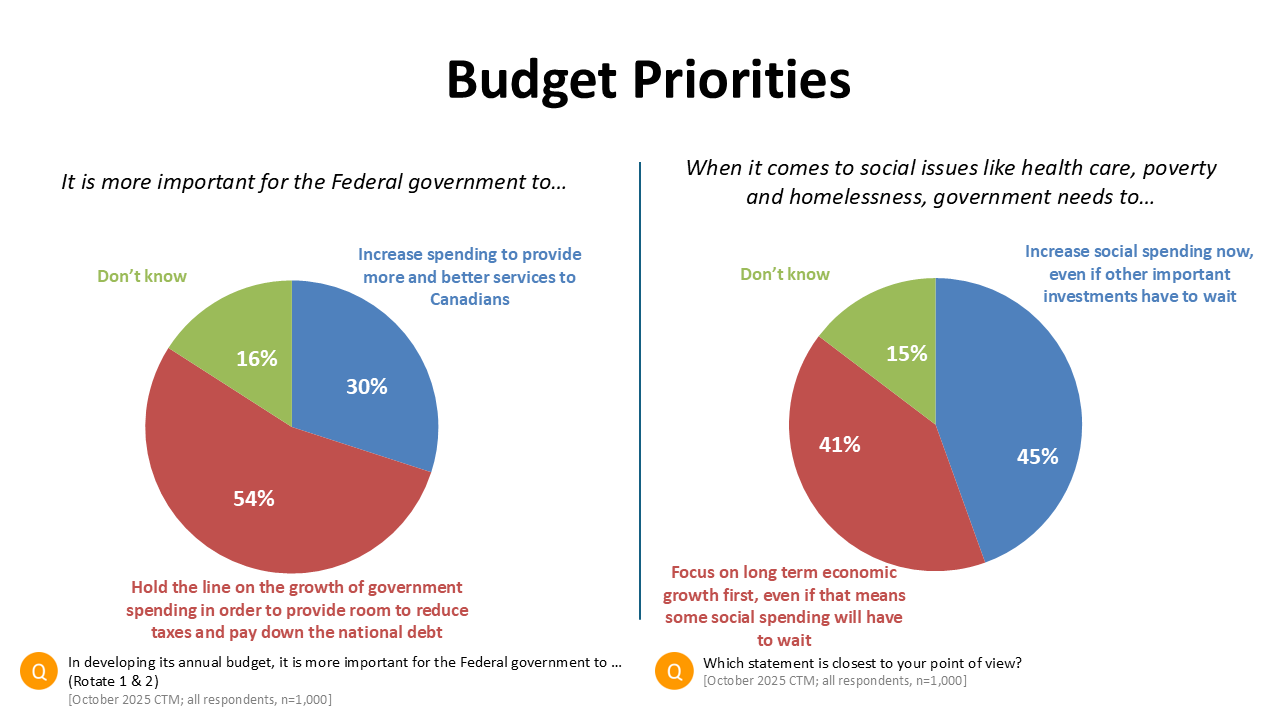
Awareness about the upcoming budget is relatively low, with only 29% recalling hearing about it. Canadians have limited expectations of the budget as well, with only 37% expecting the budget will have a direct impact on them personally, and a further 36% uncertain of its impact. Importantly the belief that the budget will impact their personal situation is concentrated among the Alienated (41%) and Strugglers (47%) in our economic segmentation. That perceived personal impact is sharply negative, with a NET impact score of -44.
This ambivalence is reflected in debt and the deficit trailing far behind cost of living and health care as primary issue concerns.
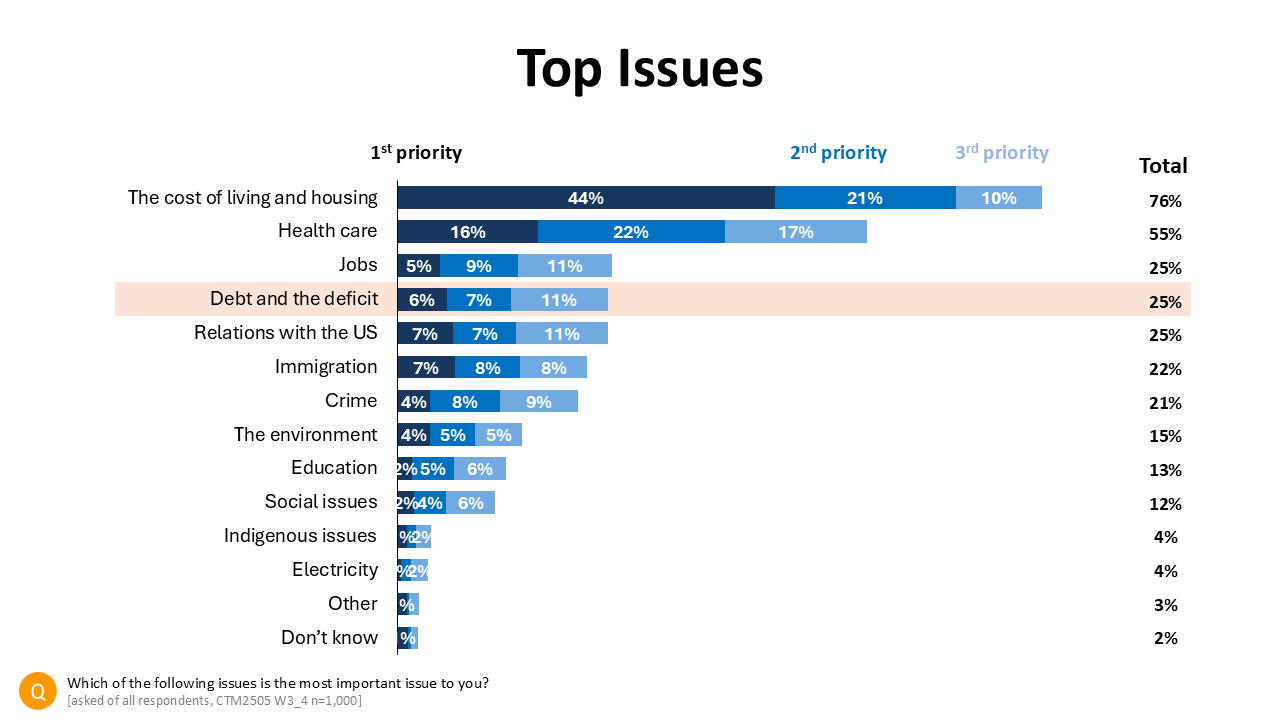
Finally, when we compare competing budget priorities, we find Canadians say ‘spend, baby, spend’. Majorities chose health care funding and social housing over deficit control and budget balance. Meanwhile, the defence spending increase that the Carney government has committed to loses to all three other priorities.
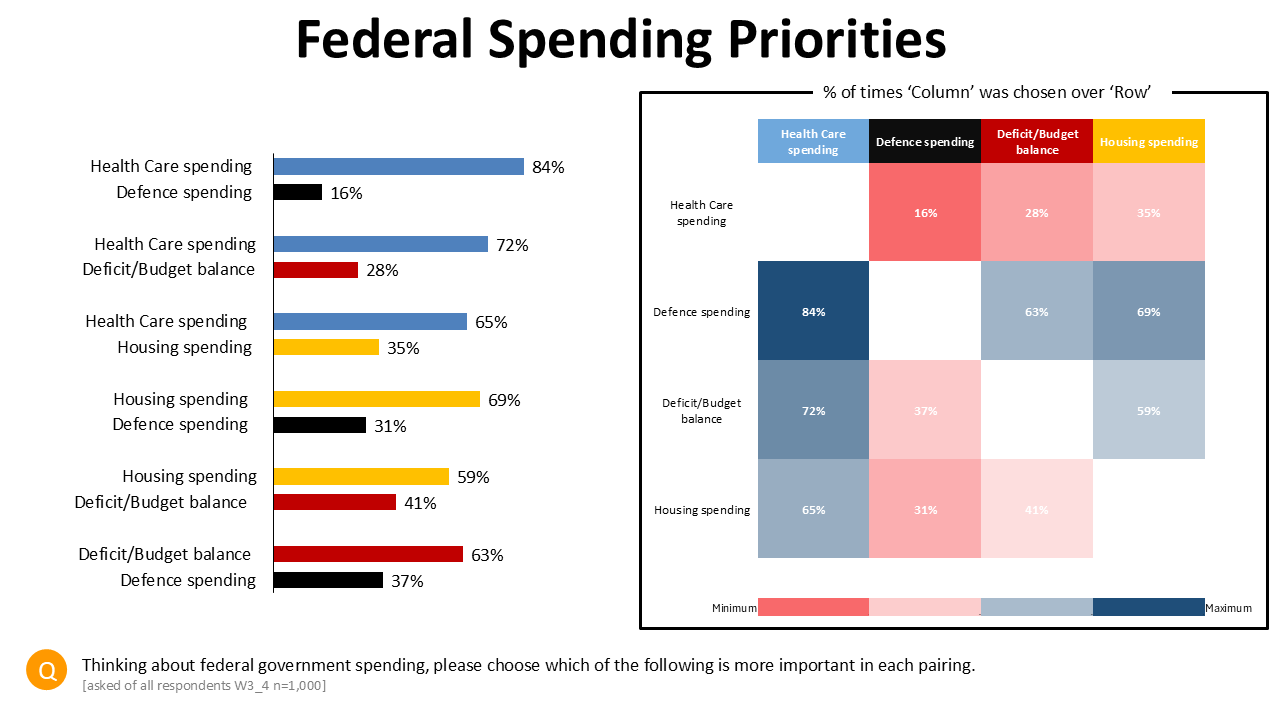
Overall, it seems fair to say that Canadians are not paying much attention to the forthcoming budget. The government’s pre-budget transformational rhetoric has not engaged Canadians. Further, the public is conflicted on its approach to austerity. At a high level, there is buy-in. But that support quickly erodes when trade-offs become more concrete.
Of particular concern for the government is that support for austerity is weakest among centre-left value segments that were critical of the government’s victory. It is hard to see how the government can turn this budget balancing act into a political win. In fact, the best outcome for the Liberals may well be the hope that Canadians will remain tuned out to the fiscal quandary.
Click here to read the full presentation!



